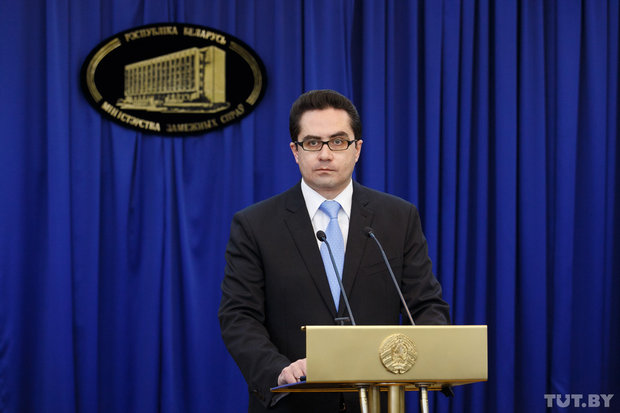Minsk aspires that western capitals soften criticism of human rights situation
 The situation has not changed
The situation has not changed

Minsk has demonstrated its willingness to the international community to improve the human rights situation in order to preserve the pace of normalisation with western capitals. Apparently, the Belarusian authorities are attempting to seize the initiative from the third sector in order to neutralize criticism of the human rights situation. Nevertheless, the Belarusian government seeks to remove the most sensitive issues, including abolishing the death penalty and expanding political freedoms, from the agenda.
As designated by the president, the National Human Rights Action Plan has been developed and approved in Belarus.
Previously, Minsk ignored the criticism from international organizations regarding the human rights situation in the country and insisted on the absence of significant problems in this sphere. Apparently, the Belarusian authorities have decided to step up cooperation with international organisations to mitigate the criticism of the most sensitive issues, such as – the abolition of the death penalty, political persecution, freedom of speech, assembly, and association, reform of the electoral law, and disappeared politicians in 1999- 2000s.
The Belarusian authorities consider that adopting such a plan is already a sufficient concession to the international community. Minsk is attempting to divert the international criticism of the human rights situation to more acceptable issues, including human trafficking, gender equality, the right to education, the rights of children and the disabled. In addition, the Belarusian leadership has left ample room for manoeuvre and has not assumed specific commitments to implement these measures in the Plan.
That said, the Belarusian authorities are committed not to have political prisoners recognized by the international human rights community. For instance, the sentence to blogger Eduard Palchis without imprisonment evidences such an effort.
In addition, Minsk regards the abolition or a moratorium on the death penalty as a major asset in the political bargaining with the West. The Belarusian authorities would like to ‘sell’ the moratorium on the death penalty for more concessions from Western capitals.
Under the pressure from the outside, the Belarusian authorities are becoming more inclusive with regard to independent human rights defenders and non-governmental organizations and formally include them in the internal dialogue on human rights. Apparently, the Belarusian government aims to depoliticise the work of independent human rights defenders and to focus their attention on less sensitive topics.
The Belarusian leadership has left a wide room for manoeuvre in implementing the recommendations of international critics in the field of human rights, which will depend on how relations with western capitals develop.
Subscribe to our newsletter




Situation in Belarus
Constitutional referendum: main consequences


 Video
Video
How to count the political prisoners: are the new criteria needed?


 Video
Video
Paternalism In Decline, Belarusian Euroscepticism, And The Influence Of Russia


 Video
Video












